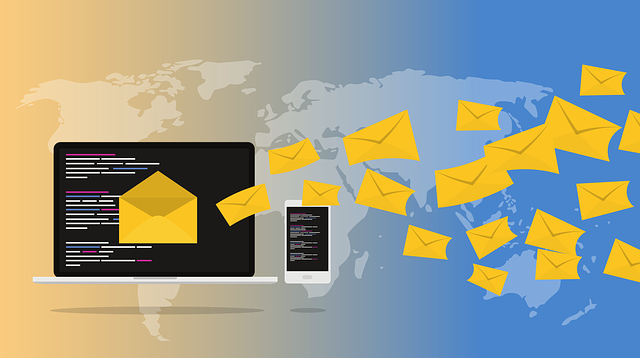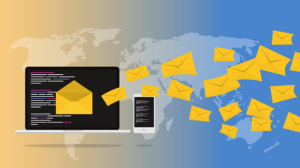
Private Internet Access (PIA) is highlighted as a critical tool for ensuring secure browsing in global medical research collaborations. It offers robust encryption protocols, including AES-256, to protect sensitive data such as patient information and intellectual property from cyber threats. The service's anonymity features are particularly advantageous for researchers who wish to maintain their privacy while accessing online databases and journals. PIA's no-logs policy further ensures user data protection, making it a trusted choice for those concerned with maintaining the confidentiality of their research. Beyond its application in medical fields, PIA also excels in providing secure browsing solutions for 'Secure Browsing for Online Gamers Anonymous,' ensuring that users can maintain anonymity and safeguard their data against potential security breaches on any device or platform, including public networks. PIA's comprehensive security features, when combined with strong password practices, two-factor authentication, and regular software updates, form a complete security protocol, making it indispensable for anyone requiring top-tier online privacy and security.
Global medical researchers delve into an ever-expanding digital realm, where data privacy and secure browsing are paramount. As they navigate this complex online landscape, Private Internet Access (PIA) emerges as a critical tool for safeguarding sensitive research information. This article explores how PIA’s robust encryption and anonymity features fortify the cyber defenses of medical professionals worldwide. From safeguarding patient data to maintaining uninterrupted access to vital research materials, PIA ensures that medical researchers can focus on innovation, undeterred by privacy threats. Join us as we dissect the importance of secure browsing for global medical research teams, outlining best practices to maintain online security with Private Internet Access.
- Navigating the Digital Frontier: How Private Internet Access Safeguards Medical Researchers' Data
- Encrypted Connections: The Lifeline of Secure Browsing for Global Medical Research Teams
- Anonymity and Access: Ensuring Privacy in Medical Research with Private Internet Access
- Best Practices for Medical Researchers to Maintain Online Security with Private Internet Access
Navigating the Digital Frontier: How Private Internet Access Safeguards Medical Researchers' Data

Medical researchers worldwide are increasingly reliant on digital resources to advance knowledge and improve healthcare outcomes. As they navigate the vast and interconnected web of information, safeguarding their data is paramount. Private Internet Access (PIA) emerges as a robust solution for secure browsing, ensuring that sensitive research data remains confidential and intact against cyber threats. PIA’s encryption protocols protect medical researchers’ online activities, particularly when they access databases, journals, or participate in global collaborations. The VPN’s anonymity features are crucial for maintaining the privacy of researchers, allowing them to freely share data without exposing their identities or the origins of their research, which is vital in today’s interconnected scientific community. PIA’s commitment to secure browsing transcends the medical field, offering similar protections to online gamers and users of anonymous platforms, thereby upholding digital privacy across various sectors and user demographics.
Encrypted Connections: The Lifeline of Secure Browsing for Global Medical Research Teams

In an era where global collaboration is pivotal for medical advancements, secure browsing stands as a cornerstone for protecting sensitive data in research endeavors. Private Internet Access (PIA) offers robust encryption protocols that are indispensable for medical researchers worldwide. By utilizing top-tier encryption standards such as AES-256, PIA ensures that the confidential information exchanged between global teams remains protected from prying eyes, safeguarding against data breaches and unauthorized access. This is particularly crucial when dealing with patient data, research findings, and intellectual property, which demand the utmost privacy and security. PIA’s secure browsing not only facilitates seamless collaboration across borders but also provides anonymity, allowing researchers to navigate the web without fear of their online activities being monitored or compromised. The platform’s commitment to no-logs policies further reinforces its stance on maintaining user privacy, making it a reliable ally for the medical research community in need of secure and anonymous browsing solutions.
Furthermore, PIA’s secure connections are not limited to traditional desktop applications; they extend to various devices and platforms, ensuring that researchers can maintain secure browsing whether they are on a public network or their personal device. This versatility is essential for online gamers, known as ‘Anonymous,’ who require the same level of privacy and security while engaging in their digital activities. By adopting PIA’s services, medical researchers and online gamers alike benefit from a secure and anonymous browsing experience, which is vital for protecting their identities and data integrity from potential threats. With PIA, both groups can navigate the internet with confidence, knowing that their communications are encrypted and their anonymity maintained.
Anonymity and Access: Ensuring Privacy in Medical Research with Private Internet Access

Medical researchers worldwide handle vast amounts of sensitive data, including patient information, genetic details, and proprietary research findings. Ensuring the privacy and security of this data is paramount, not only to protect individual privacy but also to maintain the integrity of the research process. Private Internet Access (PIA) serves as a robust solution for secure browsing, offering a suite of tools designed to safeguard users’ online activities from prying eyes. With PIA, researchers can access critical data and collaborate with peers globally while maintaining anonymity. The service’s encrypted VPN tunnels provide a secure connection, masking IP addresses and preventing eavesdropping on Internet activity. This anonymity is particularly crucial when researchers are delving into data that could be sensitive or subject to regulatory scrutiny. Furthermore, PIA’s no-logs policy ensures that user activities remain confidential, reinforcing the privacy assurances for medical professionals who require a secure environment for their online endeavors. For those in the field of medical research who also engage in activities like online gaming and wish to maintain their anonymity, PIA’s secure browsing capabilities extend beyond professional use, offering a consistent level of security for all types of online interactions. This dual functionality makes Private Internet Access an indispensable tool for maintaining privacy and security in the digital age, whether for serious research or recreational activities.
Best Practices for Medical Researchers to Maintain Online Security with Private Internet Access

Medical researchers operating in a global context must navigate sensitive data and ensure the privacy and security of their findings. With the increasing digitization of medical information, maintaining online security is paramount. One of the best practices for medical researchers to adopt is the use of a reliable virtual private network (VPN) service like Private Internet Access (PIA). PIA offers secure browsing, which is essential for safeguarding research data and communications from cyber threats. By encrypting internet traffic, PIA helps protect sensitive information from unauthorized access, ensuring that researchers can work with peace of mind.
Furthermore, using PIA, medical researchers can access online resources without exposing their actual IP addresses. This anonymity is particularly important when accessing Anonymous databases or conducting research on topics where privacy is a concern. PIA’s secure browsing capabilities also enable researchers to participate in collaborative efforts and utilize cloud-based services without the risk of data breaches. Adhering to best practices such as using strong, unique passwords, enabling two-factor authentication, and keeping software up to date complements the use of PIA, creating a robust security protocol for medical researchers worldwide.
Global medical researchers face a myriad of challenges, including the imperative to safeguard sensitive data while collaborating across vast digital landscapes. Private Internet Access (PIA) emerges as a pivotal tool in this realm, offering robust encryption and anonymity that fortify the secure browsing experiences necessary for these professionals. By employing PIA’s best practices, researchers can navigate the digital frontier with confidence, knowing their data is shielded from potential threats. As the world becomes increasingly interconnected, PIA stands out as an indispensable ally for the medical research community, ensuring that their invaluable discoveries remain private and secure, without compromising access to critical information. In the global pursuit of medical advancements, PIA is not just a service but a vital component of a secure online environment for researchers everywhere.






